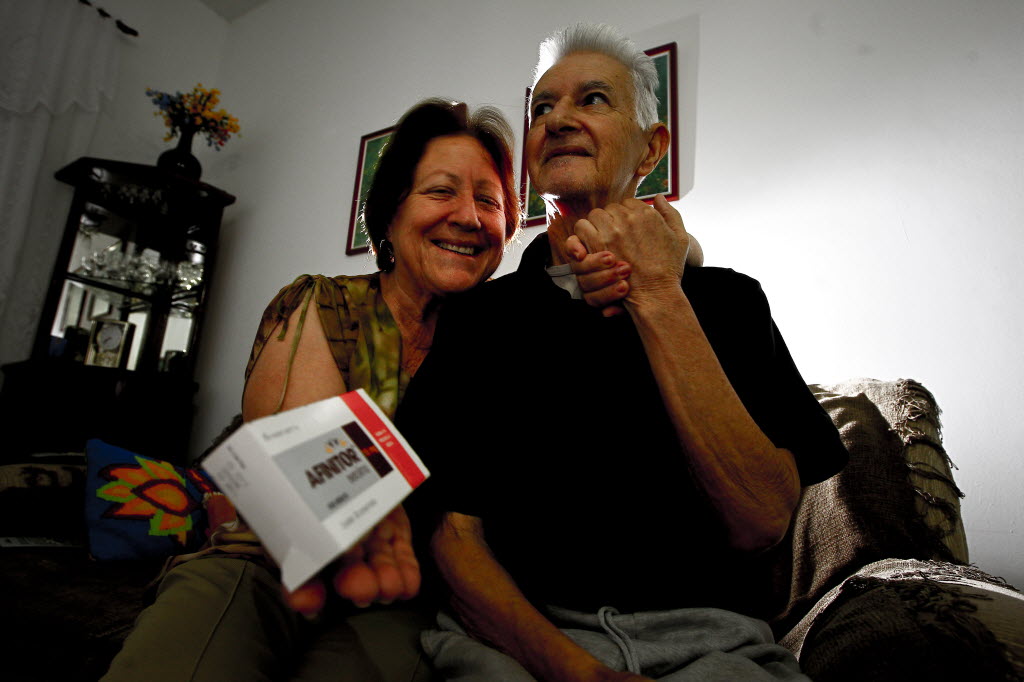Against a recent chorus of criticism for public services here, one of Brazil’s rare working-class journalists says that the SUS healthcare system is far better than nothing. It saves lives, and despite persistent serious problems, we can’t deny the progress Brazil has made in recent years.
Mauricio Savarese
São Paulo
I was about 24 when I first saw a private doctor. I didn’t even know what a fancy doctor’s office looked like. All my life, I relied on state hospitals. For vaccines, dentists, regular consultations. It’s true that Brazilians yearn for a better public healthcare system, but I can’t say it ever failed me.
Long lines? Sometimes. Not enough free medicines? Probably. Overloaded doctors? No doubt. But in a working class region of São Paulo, the system worked.
Everything I saw was very different from the chaotic scenes often found in smaller capitals or in the country’s poorest regions, and that is indeed a real shame. But I was first a patient in state hospitals in the eighties, Brazil’s worst decade by far. And though I am sure there still a lot to improve, what I have seen is a system that is not great, but not so bad.
Back then, Brazil was far from investing like it is now. In 2012 alone, the Health Ministry had a budget of US$ 40 billion. Medicine wasn’t as advanced. And Brazilians weren’t even thinking of protesting against those dire conditions – they knew there was absolutely nothing that could be done.
Brazil has a “two-tiered” system. That means that in theory, everyone has a right to free, universal healthcare. But in practice, rich people spend their cash on private insurance plans, ensuring them access to better care.
I had no option but to use public healthcare. My mother was a maid during a big chunk of my childhood and, still, we had the basic care we needed in public hospitals – including free milk. When I was run over, the driver also took me to a state hospital and I was taken care of very effectively.
You would never know this from Brazil’s major media or much of the foreign coverage of Brazil, but SUS is quite often a lifesaver for average Brazilians. The reason for this incoherence is that they almost exclusively express the view of Brazil’s elite.
You don’t need to be a Marxist to see how the Brazilian elite is out of touch with normal people. They despise SUS because they choose to have private healthcare, rather than press for improvements in the public system, and they act later as if they had no choice. They act as if they and their friends didn’t also go to public hospitals for high-end treatment – many do, very quietly.
Brazil does have trouble with simple things, such as x-rays and doctors delivering basic primary care, such as by going to poor areas to say “make your children wear sandals so they aren’t infected with a disease.” But there is a good amount of attention given for basic consultations. It is far from terrible in the case of complex diseases, such as cancer. My grandmother died of cancer in a public hospital located in the middle of the Heliopolis favela, the biggest in São Paulo. She didn’t take care of herself well enough to have it diagnosed sooner. But I am sure she wasn’t worried about losing her house to pay expenses.
After all, Brazil’s system might be messy, but it is much better than nothing at all, the situation many other developed nations face. Until the new 1988 Constitution, healthcare wasn’t even considered a basic right. Only those in denial will say things have gotten worse over the last decades. And only a politician that is completely out of his mind would try to implement a system that is not universal and free.
These days, I often walk by a public hospital near to my house. There is a line outside, but a much smaller one than there was in the old days. My neighbours still go there, especially the elderly. The doctors are surely a part of the community – they are called by their first names as they dine in a very simple restaurant a few meters away.
When my grandmother discovered she had cancer, back in 2011, she wasn’t covered by private insurance. She spent her last two months in a hospital funded by the taxpayer, in the middle of a favela and – surprise – it wasn’t terrible. She said she loved it. And the doctors seemed to care. It was not as good as some of the other clinics I had visited in recent years and you could tell that by the cracks on the walls, the older equipment and the faulty elevators. But they still worked.
Last year my father had a stroke, we took him to facilities next to another shanty town. It was no British NHS, but he recovered well and was soon back to work. Just like my grandmother, he said his recovery was thanks to the doctors, not the state. I found that to be a very Brazilian way to view things; we sympathize with people, but we can’t see that there is a structure behind them.
People who protest for a better healthcare system are surely right in doing so. Life is priceless. But I really wonder if most public critics have ever set foot on a state healthcare facility. I think most have basically seen terrible footage from the worst parts of Brazil and come to the conclusion that things are the same everywhere. They aren’t. I am living proof.
Photo – a cancer patient, with wife, in São Paulo, receives his free medication after some delays.


